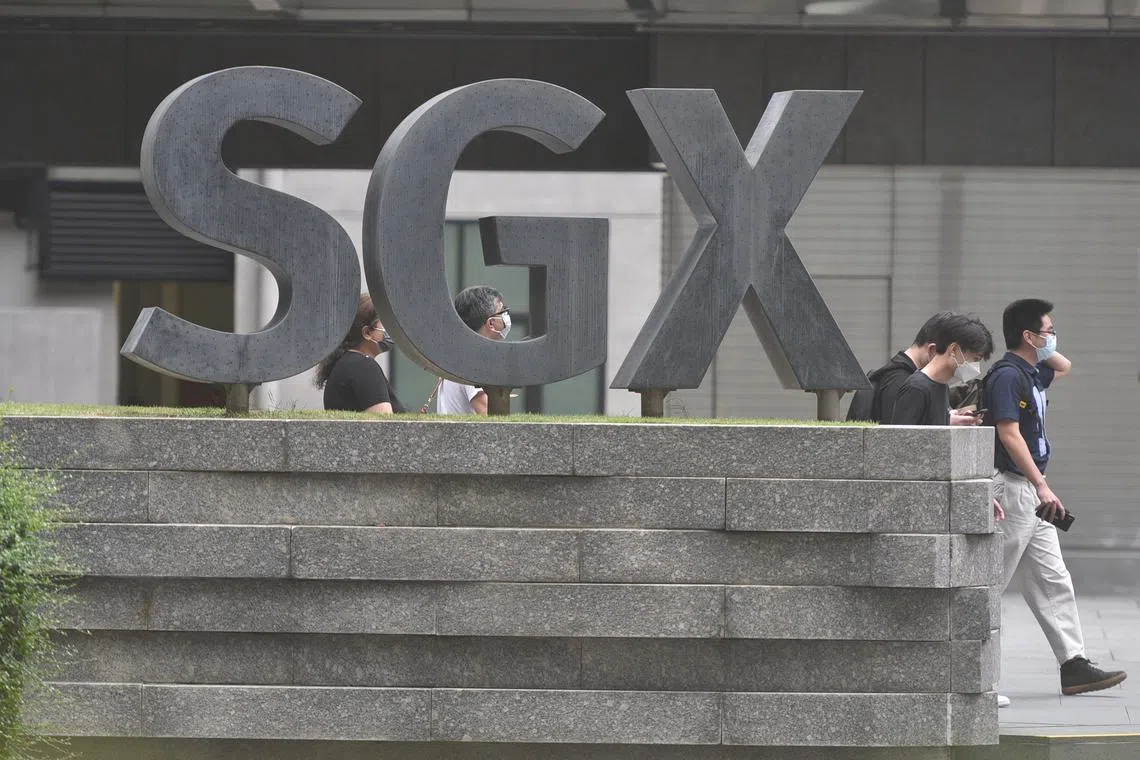Singapore stocks track Wall Street gains on Friday, STI up 0.3%
Sign up now: Get ST's newsletters delivered to your inbox

The Straits Times Index ended up 0.3 per cent or 10.42 points at 3,217.41.
PHOTO: ST FILE
Tan Nai Lun
Follow topic:
SINGAPORE – Gains on Wall Street overnight gave investors here all the incentive they needed to send the market higher on Friday.
The welcome jolt of optimism at the end of a mixed week left the Straits Times Index (STI) up 0.3 per cent or 10.42 points at 3,217.41 and ahead 0.4 per cent for the week.
Gainers outstripped losers 379 to 229 on trade of 1.5 billion shares worth $968 million.
The spark came from Wall Street, which ended markedly higher
The benchmark S&P 500 added 0.6 per cent.
The tech-heavy Nasdaq rose 0.8 per cent while the Dow Jones Industrial Average inched up 0.4 per cent.
SPI Asset Management managing partner Stephen Innes noted that Chinese markets are stabilising due to policy support but global equities have “felt a pinch” as US rates broke to the year’s highs.
The upward movement in yields had a ripple effect on other markets, contributing to a broader higher reset in global yields.
“The cat-and-mouse game between rates and stocks is well in play as higher rates have injected a lot of turbulence into the US equity market outlook,” Mr Innes noted.
The STI’s biggest gainer was CapitaLand Investment, which rose 2.7 per cent to $3.10.
Emperador was the top decliner, falling 1.9 per cent to 51 cents.
The local banks ended higher.
DBS Bank gained 0.4 per cent to $33.64, OCBC Bank increased 0.1 per cent to $12.81, and UOB rose 0.8 per cent to $28.50.
Key regional indexes were mixed. The Hang Seng gained 2.5 per cent but the Nikkei 225 in Tokyo lost 0.1 per cent and Bursa Malaysia slid 1.1 per cent.
Australian shares snapped a three-day losing streak to rise 0.3 per cent, but they ended 3.5 per cent lower for the month and 2.1 per cent down for the September quarter.
Markets in China and South Korea were closed for holidays. THE BUSINESS TIMES

